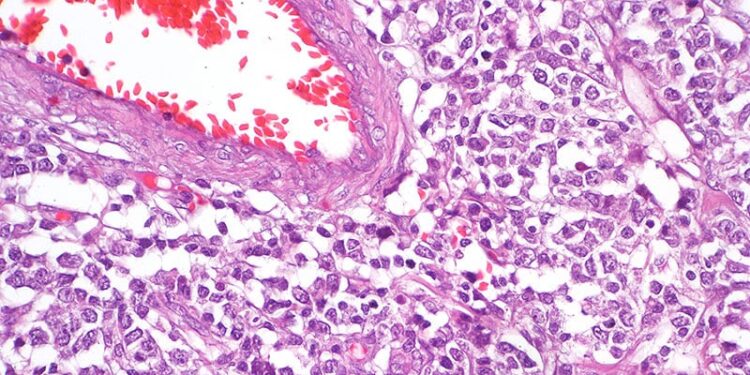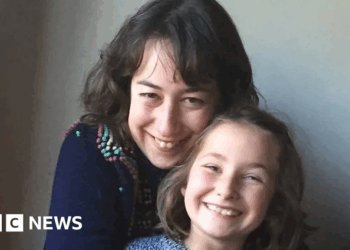Traits of noncancerous cells in diffuse large B-cell lymphoma (DLBCL) tumors appear to offer insight into which patients will benefit the most from chimeric antigen receptor (CAR) T-cell therapy, researchers reported at the 18th International Conference on Malignant Lymphoma (ICML) 2025 in Lugano, Switzerland, and in a simultaneously published study in Cancer Cell.
An analysis of DLBCL tumor cells led by investigators from MD Anderson Cancer Center in Houston and Washington University School of Medicine in St Louis, Missouri, identified three “lymphoma microenvironment archetype profiles” — two that are abnormal and one that is in the normal range.
The research suggests that “diffuse large B-cell lymphoma patients who have this normal lymph node environment are those most likely to benefit from CAR T-cell therapy. This may be a very useful predictive biomarker to select patients who would really benefit from this treatment,” said discussant Stephen M. Ansell, MB ChB, PhD, chair of Hematology at Mayo Clinic, Rochester, Minnesota, at an ICML session where the findings were presented.
Defining the Lymphoma ‘Microenvironment’
The researchers launched the study to better understand the lymphoma microenvironment, defined as “all of the nontumor cells that define the architecture and immune state of DLBCLs,” said co-author Michael R. Green, PhD, associate professor and vice chair for Research, Department of Lymphoma/Myeloma, Division of Cancer Medicine, University of Texas MD Anderson Cancer Center, in an interview.
“With the introduction of T-cell engaging therapies and cellular therapies, which are currently used in the relapsed/refractory setting and are likely primarily influenced by the immune microenvironment, we saw a need to provide a comprehensive map of immune and nonimmune cells within DLBCLs,” Green said.
The focus, he said, is on “how they are assembled into reproducible microenvironment archetypes and how these relate to outcome in patients treated with cellular therapy.”
Using single-nucleus multiome sequencing, researchers analyzed cells from 232 tumors and 232 control tissues.
At the ICML presentation, study co-author David A. Russler-Germain, MD, PhD, instructor, Division of Oncology, Washington University School of Medicine, Siteman Cancer Center/Barnes-Jewish Hospital, St. Louis, Missouri, said three archetypes of cells were identified:
- FMAC archetype (37% of tumors): “Characterized by a sparsity of T/K [T/natural killer] cells and an overrepresentation of cancer-associated fibroblasts and macrophages”
- LN archetype (33% of tumors): “Characterized by naive and memory T cells together with lymph node architecture cell types”
- TEX archetype (30% of tumors): “Characterized by an abundance of CD8+ T cells with markers of exhaustion”
Dramatic Differences in CAR-T Response Rates
Researchers applied the data to the ZUMA-7 clinical trial, which compared CAR-T cell therapy to standard chemotherapy and found signs that the archetypes had predictive power.
Patients with the LN archetype — resembling normal lymph node architecture — had the best outcomes with CAR-T therapy, achieving 67% progression-free survival at 1 year. FMAC and TEX archetypes had much lower success rates of 43% and 35%, respectively.
“The key data related to outcome is that LN archetype patients highly benefit from CAR T, FMAC patients have a diminished benefit, but it is still significantly better than standard of care, and TEX patients have no significant benefit to CAR T compared to standard of care,” Green said. “This is the first biological subgroup of patients shown clearly not to benefit from CAR T with underlying biology that provides direct and targetable mechanisms of resistance.”
Implications for Personalized Treatment
As the study noted, the introduction of CAR T-cell therapy as a second-line therapy in DLBCL “has significantly improved outcomes and leads to durable responses beyond 2 years in > 40% of patients. Nevertheless, most patients will not have durable benefit from [CAR T], highlighting a critical need to understand factors influencing response.”
According to Green, the findings suggest that CAR T-cell therapy could be tailored for each archetype. “LN patients will likely have good outcomes with CAR T alone, whereas FMAC patients have a cold microenvironment that may benefit from ‘microenvironment priming’ prior to CAR T, and TEX patients may require combination of CAR T cells with other agents such as interferon gamma and checkpoint-blocking antibodies.”
The study’s classification system, known as LymphoMAP, is not yet available in the clinic. However, it “will be prospectively evaluated in interventional trials using microenvironment-guided therapeutic strategies using CAR-T or bispecific antibodies as a backbone,” Green said.
Moving forward, discussant Ansell said, “there is a great opportunity here…to look at the good outcome group and say, ‘What is it about them that causes about half of those patients to subsequently progress or die and not do as well as what we would hope?’ How could we make that top group, the responding group, do even better?”
This research was funded by the Schweitzer Family, the MD Anderson Lymphoid Malignancies Program and the National Cancer Institute. Green declared being a scholar of the Leukemia and Lymphoma Society, and two authors declared being supported by fellowships from the Lymphoma Research Foundation.
Green disclosed having relationships with Sanofi, Kite/Gilead, Abbvie, Allogene; BMS, Arvinas, Johnson & Johnson, Daiichi Sankyo, DAVA Oncology and KDAc Therapeutics. Some other authors reported having various and multiple disclosures. Russler-Germain had no disclosures. Ansell reported having relationships with BMS, Takeda, Affimed, Regeneron, AI, Pfizer, AstraZeneca, and ADC.
Source link : https://www.medscape.com/viewarticle/dlbcl-tumor-cell-signatures-predict-car-t-success-2025a1000gi4?src=rss
Author :
Publish date : 2025-06-20 11:42:00
Copyright for syndicated content belongs to the linked Source.




